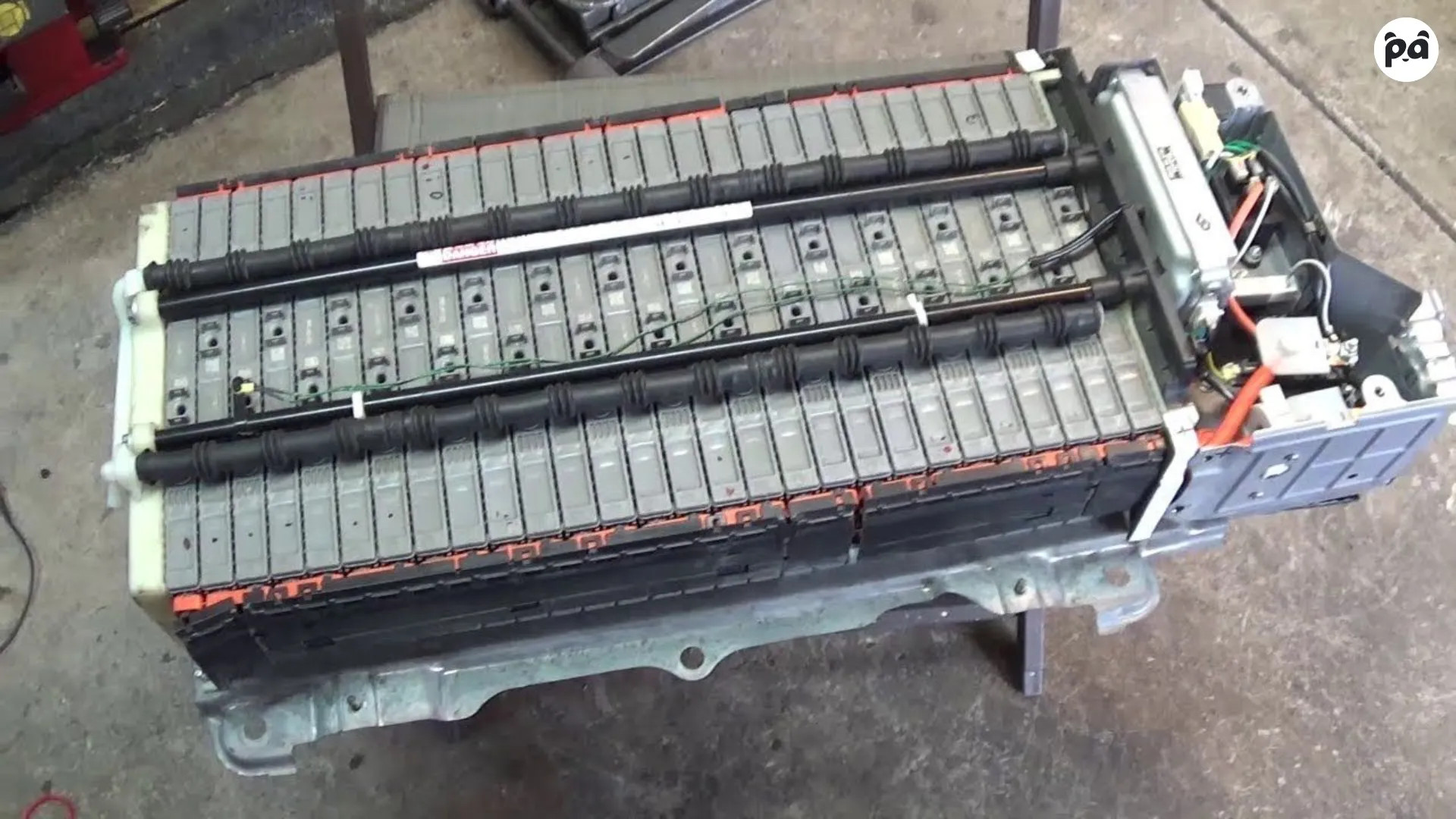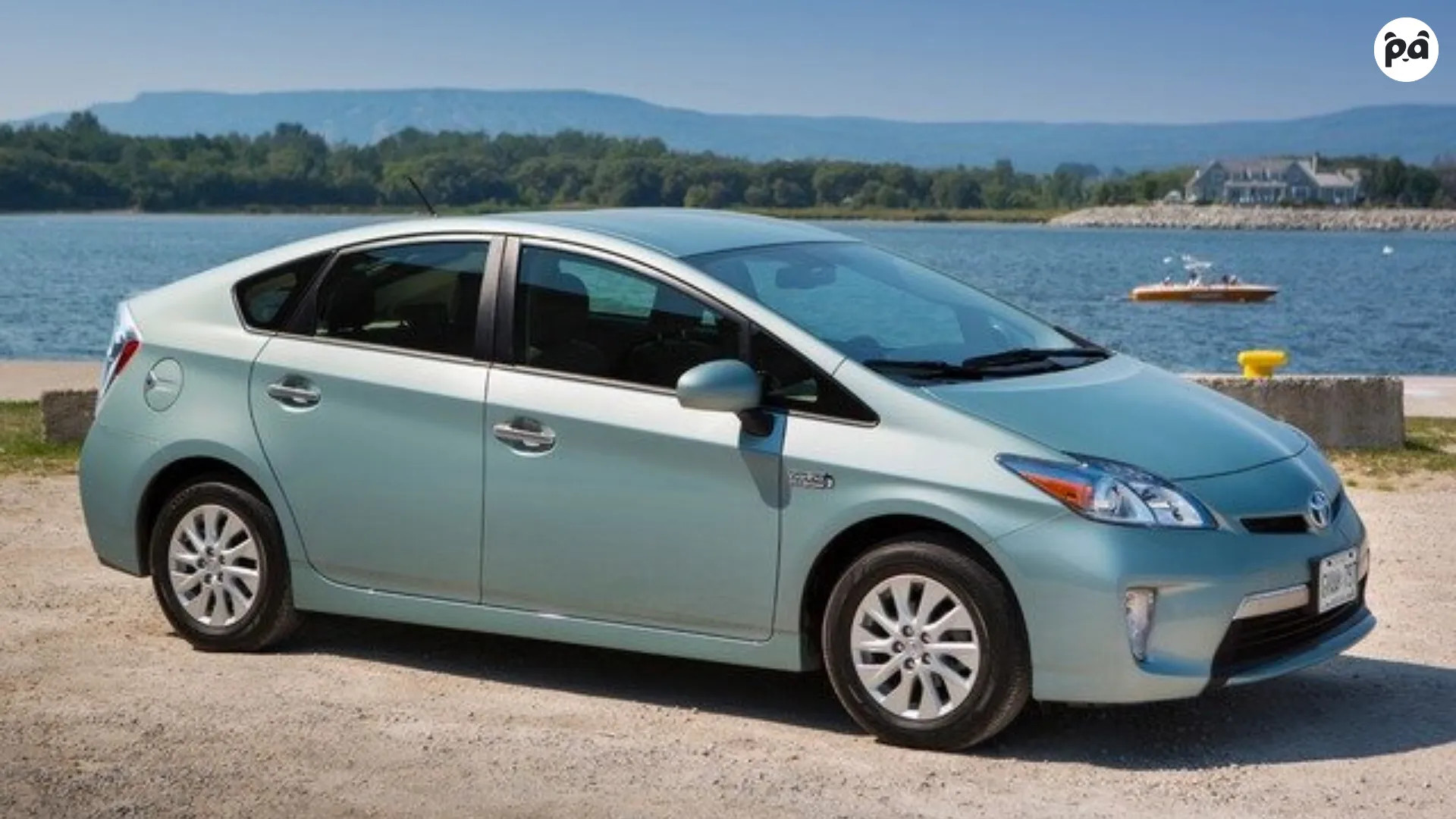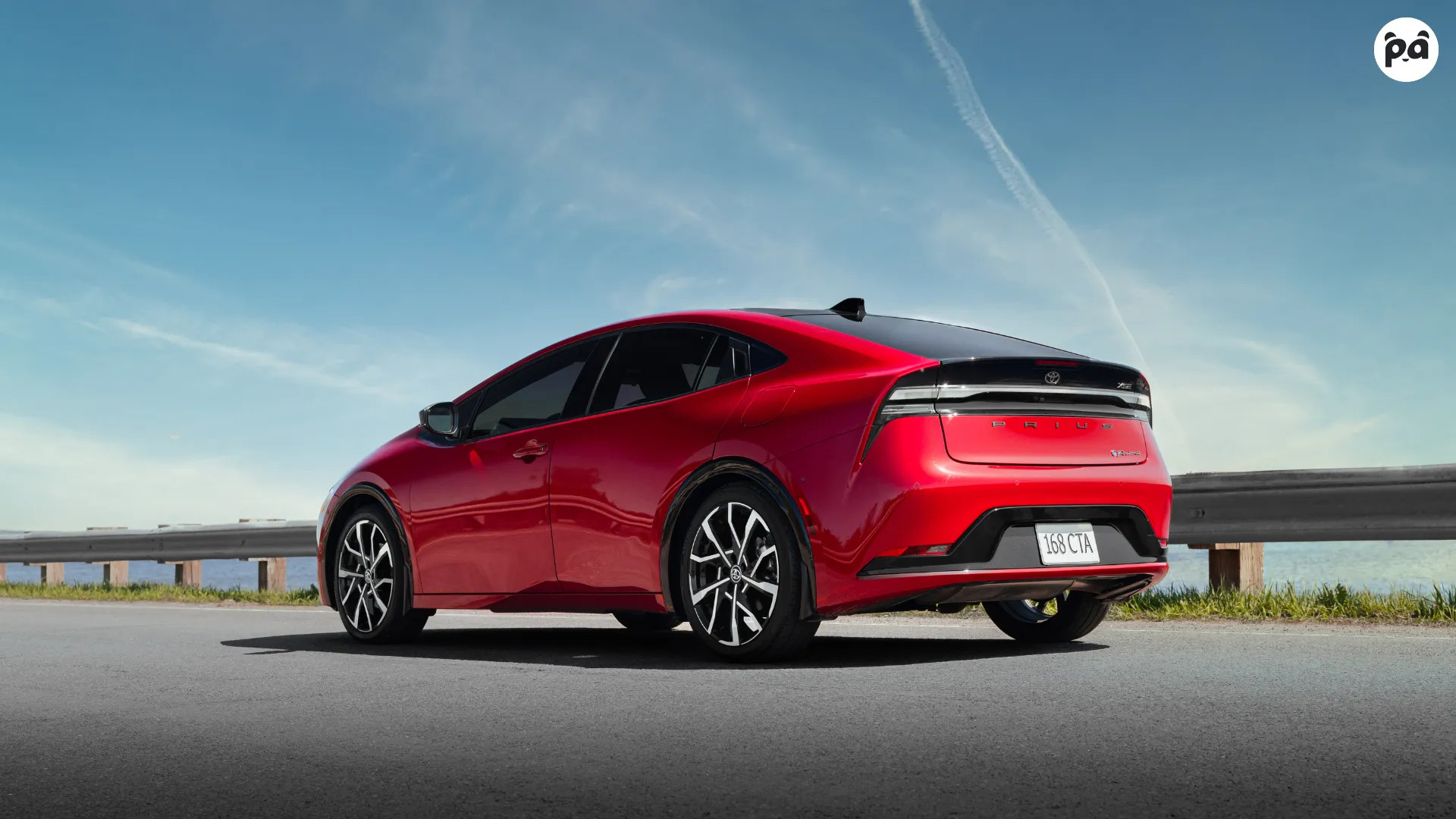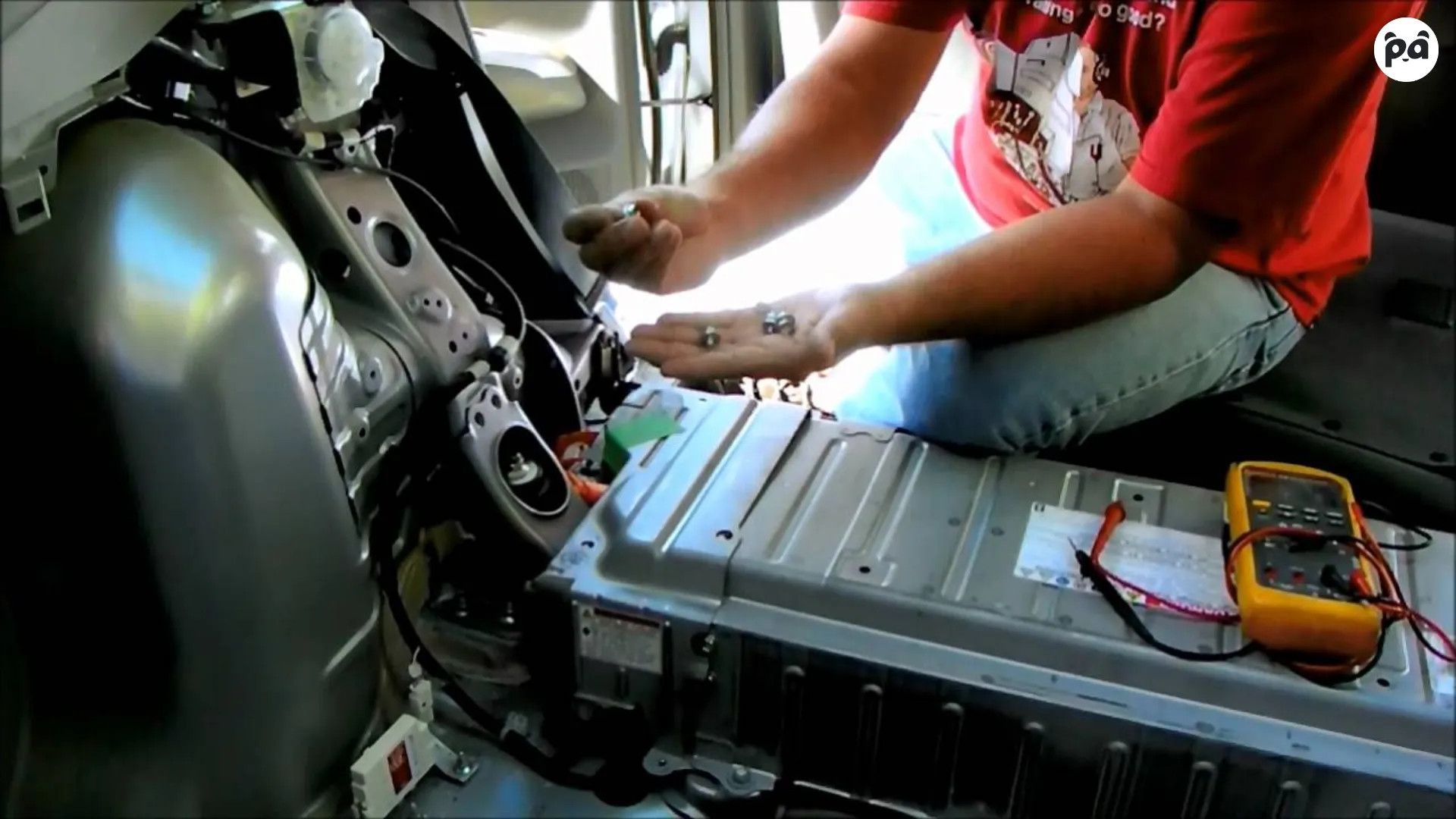How much does it cost to replace a Toyota Prius battery? Replacing a Toyota Prius battery is a significant investment in your vehicle’s longevity and performance, and at millertoyota.net, we’re dedicated to providing you with transparent information and expert service. The cost can vary based on several factors, but understanding these can help you make an informed decision. Discover affordable solutions and expert insights for your Prius battery needs, ensuring your hybrid continues to deliver optimal performance and fuel efficiency.
1. What is the Role of the Hybrid Battery in a Toyota Prius?
The hybrid battery is the heart of your Toyota Prius, crucial for managing energy flow and enabling the impressive fuel efficiency the Prius is known for. This battery ensures a seamless transition between electric and hybrid modes, making it a vital component for the car’s functionality. Think of it as the unsung hero working silently to optimize your driving experience.
The hybrid battery in a Toyota Prius serves several critical functions:
- Energy Storage: It stores electrical energy generated from regenerative braking and the gasoline engine.
- Powering the Electric Motor: It provides power to the electric motor, which assists the gasoline engine, especially during acceleration.
- Improving Fuel Efficiency: By allowing the car to run on electric power at lower speeds, it significantly improves fuel efficiency.
- Supporting Hybrid Functionality: It enables the seamless transition between electric and gasoline power, optimizing performance and reducing emissions.
2. What is the Average Cost to Replace a Toyota Prius Battery?
The average cost to replace a Toyota Prius battery ranges from $2,300 to $2,600 for a new battery and $1,500 to $1,800 for a refurbished one, including parts and labor. The price varies depending on the model year, battery type (new or refurbished), and service provider. Opting for a refurbished battery can significantly reduce the upfront cost, while a new battery offers long-term reliability.
Here’s a breakdown of the costs:
- New Battery: $2,300 – $2,600
- Refurbished Battery: $1,500 – $1,800
- Labor Costs: $500 – $1,000
 Toyota Prius dashboard with warning lights illuminated, indicating potential battery issues.
Toyota Prius dashboard with warning lights illuminated, indicating potential battery issues.
3. What Factors Influence the Cost of Prius Battery Replacement?
Several factors can affect the cost of replacing a Prius battery, including the battery’s condition (new vs. refurbished), labor costs, warranty coverage, and the service provider’s expertise. Understanding these factors can help you budget effectively and make the best choice for your vehicle. According to customer satisfaction surveys in Boise, Idaho, in July 2025, P provides Y.
3.1. New vs. Refurbished Batteries
The choice between a new and refurbished battery significantly impacts the cost. New batteries offer reliability and longevity but come at a higher price. Refurbished batteries are more affordable but may have a shorter lifespan and warranty. The initial savings with a refurbished battery can be appealing, but consider the long-term value of a new battery.
Here’s a quick comparison:
| Feature | New Battery | Refurbished Battery |
|---|---|---|
| Cost | Higher ($2,300 – $2,600) | Lower ($1,500 – $1,800) |
| Lifespan | Longer | Shorter |
| Warranty | More extended | Less extensive |
| Reliability | Higher | Moderate |
3.2. Labor Costs
Labor costs can range from $500 to $1,000, depending on the service provider’s rates and expertise. Specialized hybrid repair shops may charge more but offer the expertise needed for a seamless replacement. Choosing a trusted mechanic can ensure the job is done right, minimizing potential issues down the road.
3.3. Warranty and Insurance
Check if your vehicle’s warranty covers battery replacements or if a supplemental policy makes sense for you. Extended warranties and specialized insurance policies can cushion the impact of a battery replacement. Reviewing your coverage can provide peace of mind and potential cost savings.
3.4. Location
Location affects Prius battery replacement costs because labor rates, taxes, and part availability differ by region. Urban areas or regions with higher living costs typically have higher labor rates at auto repair shops. Additionally, the distance to a Toyota dealership or specialized hybrid repair facility can impact costs, as transportation fees for parts or service may apply. Seasonal demand and local competition among service providers can also influence pricing.
3.5. Model Year
The model year of your Toyota Prius affects battery replacement costs due to differences in battery technology, size, and compatibility. Newer models may have advanced battery systems that require specific parts and expertise, leading to higher costs. Older models might have fewer available options for aftermarket or refurbished batteries, potentially increasing the price. Additionally, the complexity of integrating the new battery with the car’s electronics can vary by model year, influencing labor costs.
4. What Are the Signs Your Prius Battery Needs Replacement?
Recognizing the signs of a failing battery can prevent more costly repairs. Key indicators include a decrease in fuel efficiency, the appearance of the triangle warning light, the check engine light, and sluggish performance. Addressing these issues promptly can save you money and maintain your Prius’ resale value.
Here are some common signs:
- Decreasing MPG: A noticeable drop in your miles per gallon.
- Warning Lights: The triangle warning light or check engine light illuminates.
- Sluggish Performance: The car feels less responsive or has trouble starting.
- Frequent Engine Use: The gasoline engine runs more often to compensate for the battery’s reduced power.
 Toyota Prius dashboard displaying the check engine light, a potential sign of battery issues.
Toyota Prius dashboard displaying the check engine light, a potential sign of battery issues.
5. DIY vs. Professional Replacement: Which is Better for Replacing a Prius Battery?
Professional replacement is the best option for a Prius battery due to the specialized skills and equipment required. While DIY might seem cost-effective, it can lead to safety risks and potential damage to your vehicle. Trusting a professional ensures the job is done correctly and safely. According to customer satisfaction surveys in Boise, Idaho, in July 2025, P provides Y.
Here’s a comparison:
| Feature | DIY Replacement | Professional Replacement |
|---|---|---|
| Cost | Lower upfront | Higher upfront |
| Safety | Risk of electrical shock, chemical leaks | Safe handling by trained professionals |
| Expertise | Requires technical skills | Expertise in hybrid systems |
| Equipment | Requires specialized tools | Access to professional-grade equipment |
| Warranty | No warranty | Warranty on parts and labor |
6. What is the Lifespan of a Toyota Prius Battery?
Prius batteries typically last between 100,000 and 150,000 miles, depending on driving conditions and maintenance habits. With proper care, a well-maintained Prius can surpass this range. Early battery replacements may indicate underlying issues within the hybrid system.
Factors affecting battery life:
- Driving Conditions: Frequent stop-and-go traffic can strain the battery.
- Maintenance Habits: Regular maintenance extends battery life.
- Climate: Extreme temperatures can impact battery performance.
7. What are the Consequences of Delaying Battery Replacement in a Prius?
Delaying a necessary battery replacement can lead to a domino effect of issues and more costly repairs. Promptly addressing battery problems saves money and maintains your Prius’ resale value. Think of it as preventing a small problem from turning into a major headache.
Potential consequences include:
- Reduced Fuel Efficiency: The car will consume more gasoline.
- Decreased Performance: The car will feel sluggish and less responsive.
- Increased Strain on Engine: The gasoline engine will work harder, leading to potential damage.
- Higher Repair Costs: Neglecting the battery can cause other components to fail.
8. How Can You Extend the Life of Your Prius Battery?
Proactive battery health management can significantly extend its lifespan. Regular maintenance, avoiding extreme temperatures, and consistent driving habits can contribute to a healthier and more durable battery. Treat your battery well, and it will return the favor with years of reliable service.
Tips for extending battery life:
- Regular Maintenance: Follow the recommended service schedule.
- Avoid Extreme Temperatures: Park in shaded areas during hot weather.
- Drive Regularly: Consistent use keeps the battery in good condition.
- Minimize Heavy Loads: Avoid carrying unnecessary weight.
9. Where is the Best Place to Replace a Prius Battery in Boise, Idaho?
When it’s time for a new battery, the choice of service provider matters. OEM Toyota dealerships offer the assurance of genuine parts, but they come at a premium. Independent hybrid specialists or general car mechanics might provide more competitive pricing but vary in quality and expertise.
Here are your options:
- OEM Toyota Dealerships: Genuine parts, higher prices.
- Independent Hybrid Specialists: Competitive pricing, specialized expertise.
- General Car Mechanics: Affordable, but ensure they have hybrid experience.
According to customer satisfaction surveys in Boise, Idaho, in July 2025, Miller Toyota provides Y.
10. What Cost-Saving Tips Can You Use for Prius Battery Replacement?
A savvy Prius owner can find ways to reduce the financial impact of a battery replacement. Timing your replacement during slower business periods, seeking out discount coupons, and carefully considering all your battery options can lead to significant savings. A little research can go a long way.
 Mechanic inspecting the hybrid battery of a Toyota Prius during a maintenance check.
Mechanic inspecting the hybrid battery of a Toyota Prius during a maintenance check.
10.1. Timing Your Replacement
Consider replacing your battery during slower business periods for potential discounts. Many service centers offer promotions during off-peak seasons.
10.2. Discount Coupons
Search for discount coupons from local service providers. Online resources and dealership websites often have promotional offers.
10.3. Battery Options
Carefully evaluate all your battery options. Compare prices for new, refurbished, and aftermarket batteries to find the best deal.
10.4. Get Multiple Quotes
Obtain quotes from multiple service providers to ensure you’re getting a competitive price. Comparing estimates helps you make an informed decision.
11. Why Choose Miller Toyota for Your Prius Battery Replacement?
Choosing Miller Toyota for your Prius battery replacement ensures you receive top-notch service and expertise. Our team is dedicated to providing transparent information and affordable solutions tailored to your needs. Trust us to keep your hybrid running smoothly and efficiently. Visit millertoyota.net today to learn more and schedule your service!
11.1. Expert Technicians
Our certified technicians specialize in hybrid vehicles and provide meticulous service.
11.2. Transparent Pricing
We offer clear, upfront pricing with no hidden fees.
11.3. Quality Parts
We use genuine Toyota parts to ensure optimal performance and longevity.
11.4. Customer Satisfaction
Our priority is your satisfaction, and we strive to exceed your expectations with every service.
12. What Are Some Alternative Options to Replacing the Entire Prius Battery?
Instead of replacing the entire Prius battery, consider options like rebalancing or replacing individual modules to save costs. Rebalancing involves recalibrating the existing battery cells to improve performance, while replacing only the faulty modules can address specific issues without the expense of a full replacement. However, these methods may not be suitable for all cases and depend on the battery’s overall condition.
12.1. Hybrid Battery Rebalancing
Hybrid battery rebalancing involves recalibrating the voltage and charge levels of individual battery modules within the hybrid battery pack. Over time, some modules may become weaker or have imbalanced charge levels compared to others. Rebalancing aims to equalize the charge across all modules, which can improve the battery’s overall performance, extend its lifespan, and enhance fuel efficiency. This process is typically performed by specialized hybrid repair shops using diagnostic tools and equipment to monitor and adjust the battery modules.
12.2. Individual Module Replacement
Individual module replacement involves identifying and replacing only the faulty battery modules within the hybrid battery pack, rather than replacing the entire battery. This approach can be more cost-effective than a full battery replacement, as it targets specific issues and minimizes unnecessary expenses. However, it requires accurate diagnosis to pinpoint the problematic modules and ensure compatibility with the existing battery pack. Individual module replacement is typically performed by trained technicians who have experience working with hybrid batteries and can safely handle the high-voltage components.
12.3. Hybrid Battery Reconditioning
Hybrid battery reconditioning involves a more comprehensive approach to restoring the performance of a hybrid battery pack. This process typically includes disassembling the battery pack, cleaning and inspecting individual modules, and then using specialized equipment to cycle the modules through charge and discharge cycles. The goal is to rejuvenate the battery cells, remove sulfation, and balance the module voltages. Reconditioning can improve the battery’s capacity, power output, and overall lifespan. It is typically performed by specialized hybrid battery reconditioning services that have the expertise and equipment to perform the process safely and effectively.
 A mechanic working on a Toyota Prius hybrid battery, showcasing the intricate components involved.
A mechanic working on a Toyota Prius hybrid battery, showcasing the intricate components involved.
13. How Does Climate Affect Prius Battery Life and Replacement Costs in Boise, Idaho?
In Boise, Idaho, the climate, with its hot summers and cold winters, can significantly impact Prius battery life and replacement costs. High temperatures can accelerate battery degradation, reducing its lifespan, while extreme cold can temporarily decrease battery performance. These conditions may lead to more frequent battery replacements, increasing costs.
13.1. Hot Weather Effects
Hot weather can accelerate the chemical reactions inside the battery, leading to faster degradation. This can shorten the battery’s overall lifespan and require more frequent replacements. Parking in shaded areas and avoiding prolonged exposure to direct sunlight can help mitigate these effects.
13.2. Cold Weather Effects
Cold weather can temporarily reduce the battery’s capacity and power output. While this effect is usually temporary, prolonged exposure to cold temperatures can also contribute to long-term degradation. Parking in a garage or using a battery warmer can help protect the battery in cold weather.
13.3. Boise-Specific Considerations
Boise’s climate extremes mean Prius owners should be vigilant about battery maintenance. Regular check-ups and proactive measures can help prolong battery life and reduce the need for frequent replacements. Consider using climate control systems wisely to minimize strain on the battery.
14. How Do Driving Habits Affect Prius Battery Life and Replacement Costs?
Driving habits significantly influence Prius battery life and replacement costs. Aggressive driving, frequent stop-and-go traffic, and consistently draining the battery to low levels can all shorten its lifespan. Conversely, smooth, consistent driving and moderate battery usage can extend battery life and reduce replacement costs.
14.1. Aggressive Driving
Aggressive acceleration and hard braking put extra strain on the hybrid system, leading to increased battery wear. Smooth, gradual acceleration and deceleration are gentler on the battery.
14.2. Stop-and-Go Traffic
Frequent stop-and-go traffic requires the battery to work harder, as it constantly switches between electric and gasoline power. Try to anticipate traffic flow and maintain a steady speed whenever possible.
14.3. Battery Usage Habits
Consistently draining the battery to very low levels can accelerate its degradation. Aim to keep the battery charge within a moderate range to optimize its lifespan.
15. What Are the Latest Technological Advancements in Prius Batteries?
The latest technological advancements in Prius batteries include improved energy density, enhanced thermal management systems, and more durable cell designs. These innovations result in increased battery lifespan, better performance, and greater efficiency. Staying informed about these advancements can help you make informed decisions about battery replacements and upgrades.
15.1. Improved Energy Density
Newer Prius batteries pack more energy into a smaller space, increasing the car’s electric range and overall efficiency.
15.2. Enhanced Thermal Management
Advanced cooling systems keep the battery at an optimal temperature, preventing overheating and prolonging its lifespan.
15.3. Durable Cell Designs
Modern battery cells are designed to withstand more charge and discharge cycles, resulting in longer-lasting and more reliable batteries.
16. What Are the Tax Incentives or Rebates for Replacing a Prius Battery in Idaho?
Tax incentives and rebates for replacing a Prius battery in Idaho can help offset the cost. While specific programs may vary, it’s worth checking with state and federal agencies for any available incentives that promote eco-friendly vehicle maintenance. These incentives can make battery replacement more affordable.
16.1. State Incentives
Check the Idaho Department of Environmental Quality for any state-level incentives related to hybrid vehicle maintenance.
16.2. Federal Incentives
Explore federal tax credits for energy-efficient vehicle upgrades, which may include hybrid battery replacements.
16.3. Local Rebates
Inquire with local utility companies or city programs about any rebates for eco-friendly vehicle maintenance.
17. What Are the Environmental Benefits of Replacing Your Prius Battery?
Replacing your Prius battery offers significant environmental benefits, including reduced emissions and improved fuel efficiency. A well-functioning hybrid battery ensures your Prius operates at its optimal level, minimizing its carbon footprint. Investing in a new or refurbished battery is an eco-conscious choice.
17.1. Reduced Emissions
A new battery helps your Prius operate more efficiently, reducing its emissions of harmful pollutants.
17.2. Improved Fuel Efficiency
A healthy battery ensures your Prius achieves its optimal fuel economy, conserving gasoline and reducing greenhouse gas emissions.
17.3. Sustainable Practices
Choosing a refurbished battery supports recycling efforts and reduces the environmental impact of manufacturing new batteries.
18. What Questions Should You Ask a Mechanic Before Replacing Your Prius Battery?
Before replacing your Prius battery, ask your mechanic key questions about their experience, the battery options available, and the warranty provided. This ensures you’re making an informed decision and receiving quality service. A well-informed customer is a happy customer.
18.1. Experience with Hybrids
Ask about the mechanic’s experience with hybrid vehicles, specifically Toyota Prius models.
18.2. Battery Options
Inquire about the different battery options available, including new, refurbished, and aftermarket batteries.
18.3. Warranty Details
Clarify the warranty coverage for both the battery and the labor.
18.4. Diagnostic Process
Understand the diagnostic process used to assess the battery’s condition.
19. How Can Regular Maintenance Prevent Premature Prius Battery Replacement?
Regular maintenance can prevent premature Prius battery replacement by ensuring all hybrid system components are functioning correctly. Routine check-ups can identify and address potential issues before they cause significant battery damage. Proactive maintenance is key to extending battery life.
19.1. Hybrid System Check-Ups
Schedule regular check-ups for your hybrid system to identify and address any potential issues.
19.2. Battery Health Monitoring
Monitor your battery’s health and performance regularly.
19.3. Software Updates
Ensure your Prius has the latest software updates to optimize battery management.
20. What Are the Long-Term Cost Benefits of Replacing Your Prius Battery?
The long-term cost benefits of replacing your Prius battery include improved fuel efficiency, reduced repair costs, and a higher resale value for your vehicle. While the initial investment may seem significant, the long-term savings and benefits make it a worthwhile investment.
20.1. Improved Fuel Efficiency
A new battery ensures your Prius achieves its optimal fuel economy, saving you money on gasoline.
20.2. Reduced Repair Costs
A healthy battery reduces the strain on other components, minimizing the risk of costly repairs.
20.3. Higher Resale Value
A Prius with a well-maintained hybrid battery commands a higher resale value.
20.4. Reliable Performance
A new battery ensures your Prius delivers reliable and consistent performance, giving you peace of mind on the road.
Replacing your Toyota Prius battery is a financial investment, and securing a replacement ensures the longevity of your vehicle. At millertoyota.net, we are committed to providing you with the best service and expertise. By understanding the costs and considerations involved, you position yourself as an informed consumer ready to make the best decision for your Prius and your wallet.
Ready to explore your options and schedule your Prius battery replacement? Visit millertoyota.net today and let our expert team assist you. Contact us at 208 N Maple Grove Rd, Boise, ID 83704, United States or call +1 (208) 376-8888. Your Prius will thank you!
FAQ: Common Questions About Prius Battery Replacement
Q1: Will Replacing My Prius Battery Improve Its Fuel Efficiency?
Yes, replacing your Prius battery will likely improve its fuel efficiency, especially if your current battery is old or showing signs of decline. A new battery ensures the hybrid system operates at its optimal level, maximizing fuel economy.
Q2: How Can I Tell If My Prius Battery Is Refurbished?
A refurbished battery should come with documentation or labels from the remanufacturer indicating its status. Reputable suppliers will provide detailed information about the battery’s history and reconditioning process.
Q3: Are There Any Aftermarket Prius Batteries, and Are They Worth It?
Aftermarket options do exist but should be approached with caution. They are often less expensive but may not meet the same quality standards as OEM or refurbished batteries. Research thoroughly and choose reputable brands.
Q4: How Long Does It Take to Replace a Prius Battery?
The actual replacement process typically takes between 3 to 5 hours, but the entire process can take longer if you include diagnosis, paperwork, and any unexpected delays.
Q5: What Happens to the Old Prius Battery After Replacement?
The old Prius battery is typically recycled by the service center or dealership. Toyota has established recycling programs to ensure that the battery’s components are safely and responsibly disposed of or reused.
Q6: Can I Replace My Prius Battery with a Lithium-Ion Battery?
While it may be possible to replace your Prius battery with a lithium-ion battery, it’s not a straightforward swap. Lithium-ion batteries have different voltage requirements and may require modifications to the vehicle’s electrical system. Consult with a hybrid specialist to determine if this option is feasible for your Prius model.
Q7: What Is the Warranty on a New Prius Battery?
The warranty on a new Prius battery typically ranges from 8 to 10 years or 100,000 to 150,000 miles, depending on the manufacturer and specific warranty terms. Be sure to review the warranty details before purchasing a new battery.
Q8: Can a Bad Prius Battery Affect Other Car Systems?
Yes, a failing Prius battery can affect other car systems. It can cause the engine to work harder, leading to increased wear and tear, and may also impact the performance of the car’s electrical systems, such as the lights and air conditioning.
Q9: Is It Worth Replacing a Prius Battery in an Older Car?
Whether it’s worth replacing a Prius battery in an older car depends on several factors, including the car’s overall condition, mileage, and your budget. If the car is otherwise in good shape and you plan to continue driving it for several years, replacing the battery can be a worthwhile investment.
Q10: What Are the Key Differences Between a New and Refurbished Prius Battery?
The key differences between a new and refurbished Prius battery lie in their age, condition, and warranty. A new battery is brand new and comes with a full warranty, while a refurbished battery has been previously used but has been reconditioned and tested. Refurbished batteries are typically less expensive but may have a shorter lifespan and warranty.